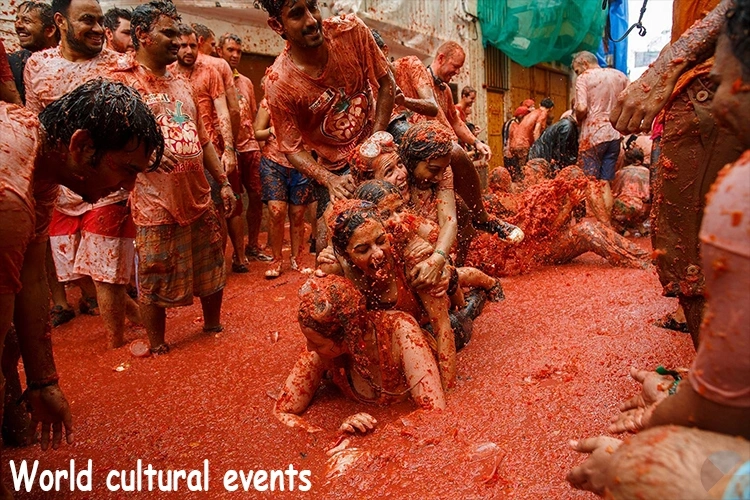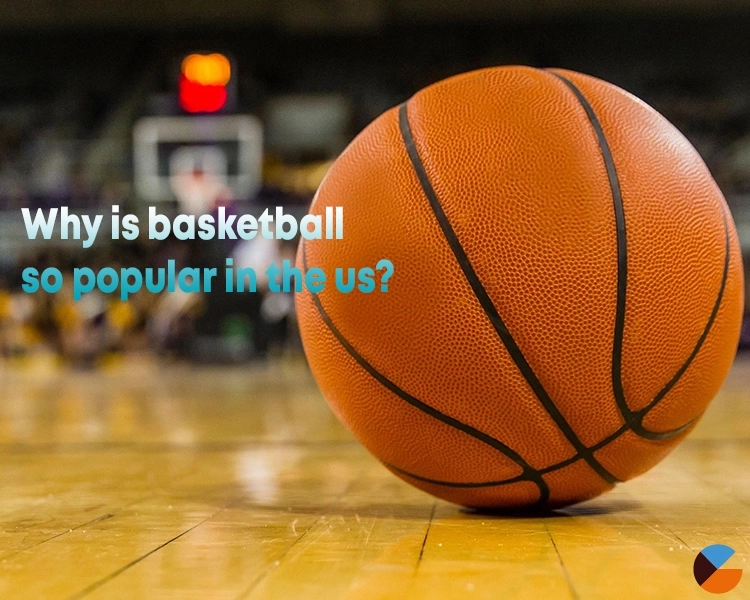World Cultural Events: A Celebration of Diversity and Heritage
World cultural events are vibrant celebrations that bring people together, showcasing the rich diversity of human heritage. These events offer a window into the traditions, arts, and customs of various cultures, fostering mutual understanding and appreciation. From colorful parades to solemn rituals, world cultural events play a vital role in preserving cultural identity while promoting global unity.
The Importance of World Cultural Events
World cultural events are more than just festivals; they are powerful expressions of cultural pride and identity. These events serve as platforms for communities to share their traditions, values, and stories with the world. In an increasingly globalized society, where cultures can sometimes feel diluted, these events help maintain cultural distinctiveness and provide opportunities for cultural exchange.
The significance of world cultural events extends beyond mere entertainment. They offer educational opportunities for people of all ages, allowing them to learn about different cultures in an engaging and immersive way. These events also contribute to the preservation of intangible cultural heritage, such as traditional music, dance, and oral traditions, which might otherwise be lost in the face of modernization.
Famous World Cultural Events
The globe is dotted with numerous world cultural events, each unique in its own right. Here are some of the most famous and celebrated events that draw millions of visitors each year.
1. Carnival in Rio de Janeiro, Brazil
The Rio Carnival is perhaps the most famous of all world cultural events. Held annually before Lent, it is a vibrant explosion of color, music, and dance. Samba schools from various neighborhoods prepare all year long to showcase their elaborate costumes and floats in a parade that is nothing short of spectacular. The event is a blend of African, Portuguese, and indigenous Brazilian cultures, reflecting the country’s rich cultural tapestry.
2. Diwali in India
Diwali, the Festival of Lights, is one of the most significant world cultural events celebrated by Hindus, Jains, Sikhs, and some Buddhists. It symbolizes the victory of light over darkness and good over evil. Homes are decorated with oil lamps and colorful rangoli designs, and fireworks light up the night sky. Diwali is also a time for family gatherings, feasting, and the exchange of gifts, making it a joyous and meaningful celebration.
3. Oktoberfest in Munich, Germany
Oktoberfest is the world's largest beer festival, but it is also a significant world cultural event that celebrates Bavarian culture. Held annually in Munich, Germany, the festival attracts millions of visitors from around the globe. Attendees don traditional Bavarian attire, enjoy folk music, and, of course, partake in the famous Bavarian beers and hearty foods. Oktoberfest is a testament to Germany’s rich cultural traditions and a celebration of its local customs.
4. Chinese New Year
Chinese New Year, also known as the Spring Festival, is one of the most important world cultural events in the Chinese calendar. It marks the beginning of the lunar new year and is celebrated with a series of customs and traditions, including family reunions, lion and dragon dances, and the exchange of red envelopes filled with money for good luck. The festival is celebrated not only in China but also in Chinese communities worldwide, making it a truly global event.
5. Day of the Dead in Mexico
The Day of the Dead (Día de los Muertos) is a unique world cultural event that honors deceased loved ones. Unlike other cultures that might view death with sorrow, this Mexican tradition celebrates it with joy and remembrance. Families create altars decorated with marigolds, candles, and the favorite foods of the departed. They believe that during this time, the spirits of the dead return to visit their families. The event is a colorful and poignant reminder of the importance of remembering and honoring those who have passed away.
6. Holi in India and Nepal
Holi, the Festival of Colors, is a joyful world cultural event celebrated primarily in India and Nepal. It marks the arrival of spring and the victory of good over evil. Participants throw colored powders at each other, dance, and sing, creating a vibrant and energetic atmosphere. Holi is not just a festival of colors; it is also a celebration of love, friendship, and the breaking down of social barriers.
7. Edinburgh Festival Fringe in Scotland
The Edinburgh Festival Fringe is the world’s largest arts festival and a prominent world cultural event. Held annually in Scotland’s capital, the festival features thousands of performances by artists from all over the world. It includes theater, comedy, dance, music, and more, offering a platform for both established and emerging talents. The Fringe is known for its open-access policy, meaning anyone can participate, making it a diverse and inclusive event.
8. Hanami in Japan
Hanami, the Japanese tradition of flower viewing, is a serene and beautiful world cultural event that celebrates the fleeting beauty of cherry blossoms. During the cherry blossom season, people gather in parks to admire the flowers, enjoy picnics, and participate in traditional music and dance performances. Hanami is a reflection of Japan’s deep connection with nature and its appreciation for the transient nature of life.
9. Venice Carnival in Italy
The Venice Carnival is a historic world cultural event known for its elaborate masks and costumes. Dating back to the 11th century, the carnival is a celebration of Venice’s rich cultural heritage. Participants don intricate masks and period costumes, and the city comes alive with parades, music, and theatrical performances. The Venice Carnival is a blend of history, art, and tradition, making it one of the most unique cultural events in the world.
10. Mardi Gras in New Orleans, USA
Mardi Gras in New Orleans is a lively and colorful world cultural event that combines elements of French, Spanish, and African cultures. Known for its elaborate parades, vibrant costumes, and festive atmosphere, Mardi Gras is a celebration of life before the Lenten season begins. The event is marked by the throwing of beads and trinkets from parade floats, the wearing of masks, and the indulgence in rich foods, particularly the famous King Cake.
The Impact of World Cultural Events on Tourism
World cultural events have a significant impact on global tourism. These events attract millions of visitors each year, contributing to the local economy and promoting cultural exchange. Tourists flock to these events not only to witness the spectacle but also to immerse themselves in the local culture. This influx of visitors provides opportunities for cultural interaction, where people from different backgrounds come together, share experiences, and learn from one another.
Moreover, world cultural events often put lesser-known destinations on the global map. For example, events like the Albuquerque International Balloon Fiesta in New Mexico, USA, or the Harbin International Ice and Snow Sculpture Festival in China draw attention to regions that might not be on the typical tourist trail. These events showcase the unique aspects of these locations, attracting tourists who might not have otherwise visited.
The Role of Technology in World Cultural Events
In the digital age, technology has transformed the way world cultural events are experienced and shared. Social media platforms allow these events to reach a global audience, with live streams, photos, and videos bringing the festivities to people who cannot attend in person. Virtual reality (VR) and augmented reality (AR) technologies are also being used to create immersive experiences, allowing people to participate in world cultural events from the comfort of their own homes.
Furthermore, technology plays a crucial role in the organization and promotion of these events. Online ticketing, event apps, and social media marketing help event organizers reach a broader audience and manage logistics more efficiently. This has made world cultural events more accessible to people from all walks of life, regardless of their location or financial means.
Challenges Facing World Cultural Events
Despite their many benefits, world cultural events face several challenges. One of the most significant challenges is the commercialization of these events. As these events grow in popularity, there is a risk that they may lose their cultural authenticity, becoming more about profit than the celebration of cultural heritage. This can lead to the dilution of traditional practices and a focus on attracting tourists rather than preserving cultural identity.
Another challenge is the environmental impact of world cultural events. The large crowds, waste generation, and energy consumption associated with these events can have a negative impact on the environment. Event organizers are increasingly aware of this issue and are taking steps to make these events more sustainable, such as implementing waste reduction programs, promoting public transportation, and using renewable energy sources.
Finally, the global nature of world cultural events means they are often vulnerable to political and social tensions. Issues such as cultural appropriation, where elements of one culture are used by another in a way that is disrespectful or exploitative, can arise during these events. It is important for organizers and participants to approach these events with sensitivity and respect for the cultures being celebrated.
Conclusion
World cultural events are a testament to the diversity and richness of human culture. They provide an opportunity for people to come together, celebrate their heritage, and learn from one another. These events play a crucial role in preserving cultural traditions, promoting global unity, and fostering a deeper understanding of the world’s many cultures.
As the world becomes increasingly interconnected, the importance of world cultural events cannot be overstated. They serve as reminders of our shared humanity and the beauty that lies in our differences. By participating in and supporting these events, we contribute to the preservation of cultural heritage and the promotion of a more inclusive and harmonious world.
In an ever-changing world, world cultural events will continue to evolve, embracing new technologies and addressing the challenges they face. However, their core purpose will remain the same: to celebrate the diversity of human culture and bring people together in the spirit of unity and understanding.









 Ingning
Ingning







